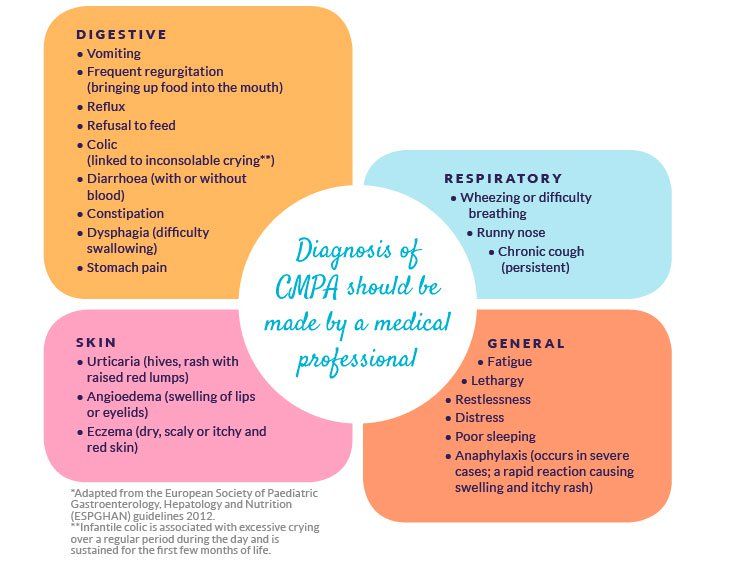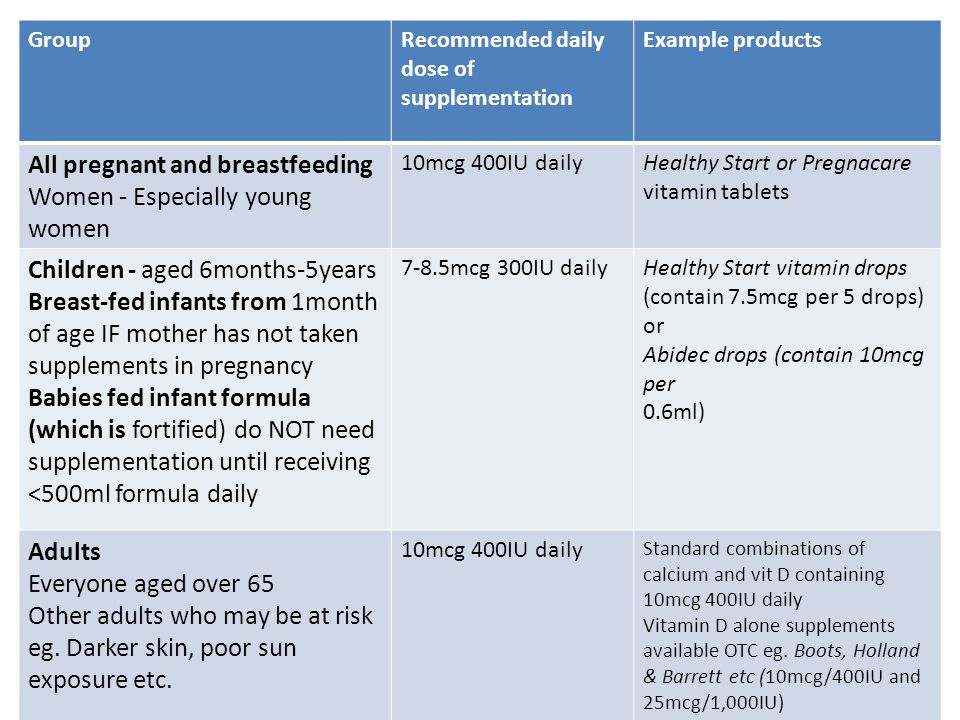How much time should father spent with child
the modern-day excuse for a parent
Ask yourself who you are. Hold that thought for a good long while and then ask what it is that you want your children to be and what you are willing to do to help them to achieve that.
Woody Allen once said: "Eighty per cent of life is just showing up." Much of being a parent is just showing up and being there for them, when they need you and even when they don't.
Over the years I have counselled many parents about how to raise their children. One recurring issue is time. How much to devote and how? Many fathers have told me they do not have enough time to spend with their children so they try for "quality time". That is good as far as it goes, but it is an excuse and a mistake. Quality time with children is nice. A visit to the Wild Wadi, a desert safari, a good movie, going to see a football match - all good. Time together doing interesting things.
But the truth is that children do not want "quality" time. They just want time. Lots of it.
In this multicultural and globalised world, parents must work harder than ever to build strong and affirming relationships with their children. There are too many distractions, for children and also for fathers and mothers. Being together with your children is very important and requires your conscientious effort.
Most fathers do not understand what fathers are for. They think that fathers exist to provide economic support and a moral example for the family. That is only part of it, and not the most important part.
Fathers are leaders, guides, friends and symbols. But they can't be anything if they are not there. Boys do not learn what it means to be a man from a computer game, but from watching and interacting with their fathers, uncles and grandfathers. Girls learn to admire and trust males by being able to admire, trust and love their fathers.
The average number of minutes a father spends talking to his children is seven per day. You cannot shape and form your children in seven minutes a day. A father should spend at least an hour each day with his children, not only talking but just being there.
A father should spend at least an hour each day with his children, not only talking but just being there.
Many mothers do not understand their role either. Children learn about love, caring and trust from their mothers. They learn to care and share from their mother's attention, caresses and caring.
Mothers who do things for and with their children form young people who will have a stronger sense of identity and a stronger bond with their families, and subsequently with others. For example, a young girl will find it hard to be a good friend with a classmate if she did not have some "good friend" relations with her mother.
Acting as a guide and formative leader is important, yet the amount of time mothers spend talking to their children is only a little more than fathers, eleven minutes a day. Not much. In too many families, the person who helps children dress, makes sure they wash their hands, serves them dinner and even gets them into their pyjamas and into bed is not the mother or the father, but the nanny.
Is it any wonder that teenagers spend time talking to strangers over the internet if they can't get their own parents to talk to them?
Many parents try to substitute things for time. They buy clothes, toys, games and gadgets for their children. But if you think about your own childhood, what you remember are not things but moments: moments spent talking with your parents, your grandparents, your siblings and your closest friends. Toys and clothes do not replace contact and time spent together.
Watching TV four or five hours a day does not replace time with a parent. Watching with a parent, however, allows for making comments on the programmes that can have positive effects in the development of a child's judgement of right, wrong, good, bad and mediocre.
The distractions are many: work, social life, friends, internet and the inevitable Facebook. But your children need time with you. Lots of it. Give it to them for your sake and theirs.
Dr Clifton Chadwick is a senior lecturer in the faculty of education, British University of Dubai
How Much Time Should We Spend With Our Kids? — The Family Academy
Do parents, especially entrepreneur parents, really spend enough time with their kids?
It’s become this kind of scorecard and we justify how good we are at parenting by the amount of time we spend with our kids.
But quantity does not equal quality. A child would rather spend 20-minutes with you playing a board game if you are ‘all in’ versus an ad hoc afternoon of wandering while you scroll your iPhone every ten minutes.
Think about your own childhood memories. Do you remember the days that your parents/caregivers starred aimlessly at their newspapers ho-humming every time you tried to speak with them, or do you remember the micro-moments like playing Barbies or collecting stickers with your mom?
Stickers and Barbies always win.
So why then are we getting ourselves so stressed about putting in the hours as though clocking our time will earn us a bigger parenting payout?
Surely there is a correlation between the time spent with our kids and how they develop as world-peace-loving human beings, but let’s be honest with ourselves, it’s not *just* about time.
The sheer amount of time American parents spend with their kids between the ripe ages of 3 and 11 has almost no correlation to how children turn out. This is according to the Journal of Marriage and Family.
This is according to the Journal of Marriage and Family.
The study actually found one key instance that spending time with your kids is actually harmful to your children, that’s when you are tired, stressed, guilty, and feeling anxious. So when you are in that state, it’s actually best to step aside from your parenting duties (call a friend, your mom, your husband, or a sitter to come in) and get time for yourself.
Self-care as a primary caregiver is more important than scheduling all-the-things in your day. Stay-at-home-moms (SAHM) get slack for ‘just’ staying home but they are on 24/7 with little to no relief. And when they are tired/sick or just flat out need a break, they deserve that f******* break, or else everyone will get a little cray cray. Your 10 hrs/week of ‘family time’ shouldn’t ever be pegged against your mom friend who homeschools her genius kids and lives a seemingly perfect life. She has her own challenges too, and likely some you don’t even want to hear (like she gets no sleep because of her newborn baby. )
)
In a survey of a thousand families, Ellen Galinsky, the head of the Families and Work Institute and the author of Mind in the Making, asked children, “If you were granted one wish about your parents, what would it be?” Most parents predicted their kids would say spending more time with them. They were wrong. The kids’ number one wish was that their parents were less tired and less stressed.
Ahh, see how this is all coming together?
So then, how much time do we really need to spend with our kids? The answer: it all depends.
I asked this question on Facebook and most parents came back with how 2-4 hours each day feels good for them during the week. Too much more and they feel overwhelmed, much less and they miss their kids. As they get older, and their kids start to lead their own lives, this obviously changes, but the quality of that time still matters.
We all raise our kids according to different values, cultures, beliefs, religions, neighborhoods, cities, countries, and so there is no one size fits all. Some parents barely see their young kids, while others spend 24/7 with them. So the argument isn’t what should you do based on the researched shared in this post. The argument is FOR rest, recovery, mental health and staying sane. How do you throttle full on running your business with parenting? How do you find the quality time with your family that actually fills up your love tank? That’s what we are looking for.
Some parents barely see their young kids, while others spend 24/7 with them. So the argument isn’t what should you do based on the researched shared in this post. The argument is FOR rest, recovery, mental health and staying sane. How do you throttle full on running your business with parenting? How do you find the quality time with your family that actually fills up your love tank? That’s what we are looking for.
So let’s start breaking this down.
The quantity versus quality mythIt’s not to say that our time with our kids is not important, it is! There are several studies that suggest that the amount of quality time we spend with our kids - like reading books, playing sports, sitting down to dinner together, meditating together - have incredible life-long outcomes for them. Also, how a parent consistently interacts with their children - warmth, care, empathy - even in passing plays a huge role in their character development.
A deep connection can be built during the most non-obvious times. A 2007 UCLA study that found "the quiet, in-between moments of family life did as much of the real work of family bonding as any fabricated family time." MacLellan goes on to quote the researchers: "Everyday activities (like household chores or running errands) may afford families quality moments, unplanned, unstructured instances of social interaction that serve the important relationship-building functions that parents seek from 'quality time'." STUDY.
A 2007 UCLA study that found "the quiet, in-between moments of family life did as much of the real work of family bonding as any fabricated family time." MacLellan goes on to quote the researchers: "Everyday activities (like household chores or running errands) may afford families quality moments, unplanned, unstructured instances of social interaction that serve the important relationship-building functions that parents seek from 'quality time'." STUDY.
Don’t force the time, just make use of the time you are already spending with them. This morning, for example, I (finally) took a few extra moments to teach my 5-year-old how to do laundry. We loaded the washer together, poured soap together, and pressed the buttons together. As I would normally just rush through this process in order to get it done, I saw it as an opportunity to connect with him. We giggled and made a mess in emptying the dryer lint, but it was so worth it. It lifted our moods for the rest of the morning. Now, not only is the laundry done and Noah knows how to do it, we shared an intimate five minutes together without sprinting through a task.
A mother’s income and education level are most strongly associated with her child’s future success. So when we look at female entrepreneur’s who are also mothers, the best support we can give them is in helping them achieve their business success. That could mean watching their kids for them, lending them so much needed business advice, referring them new clients or even helping them understand the value of their time better (ahhhm, teaching them to hire outside help.)
If there is a course you are circling around finally taking, knowing it will advance your skill set and help your business grow, then now’s the time to take it. When you get yourself and your business to a comfortable (if not thriving) income position, it will help you be a better mom. Who knew?
Mom’s mental health is a dealbreakerA study by Melissa Milkie, a sociologist at the University of Toronto found that a mother’s mental health has the biggest impact on the future success of her kids. I already mentioned this above, but let me restate this: YOUR mental health - getting a good nights sleep, not being stressed, being more relaxed and less anxious - is the #1 way in which you can be the best damn mom ever. Stop thinking that you have to do it all. Whoever said you did is lying (to themselves and to you).
I already mentioned this above, but let me restate this: YOUR mental health - getting a good nights sleep, not being stressed, being more relaxed and less anxious - is the #1 way in which you can be the best damn mom ever. Stop thinking that you have to do it all. Whoever said you did is lying (to themselves and to you).
Ask yourself, what are the things I can delay, delegate or delete? And everyday chip away at systematizing your day. It doesn't sound pretty now, but the time you take to put into creating your daily routine and system will pay off in spades later on.
Too much is too muchWe can’t force being present, well we can but over time it becomes evident you aren’t really ‘present’. And if we force our hand at just being with our kids, for time’s sake, we actually lose the reason for that quality time altogether.
Plus, ‘distance makes the great grow fonder.” If your gut is telling you you need a little break, to step away from parenting even but for a moment, do it. Call on a friend or family member to fill in your place for a bit. There is absolutely no shame in taking a break. I once overheard a friend saying that she hadn’t had a day off of mommy duty since her 9-year-old was born. She mentioned it with a sense of pride however seeing her updates on social media, those indirect “I NEED A BREAK!” jokes about wine-o'clock and how hard it is, tells me another story. She was conditioned to think she shouldn't’ take a break or else she would be a bad mom.
Call on a friend or family member to fill in your place for a bit. There is absolutely no shame in taking a break. I once overheard a friend saying that she hadn’t had a day off of mommy duty since her 9-year-old was born. She mentioned it with a sense of pride however seeing her updates on social media, those indirect “I NEED A BREAK!” jokes about wine-o'clock and how hard it is, tells me another story. She was conditioned to think she shouldn't’ take a break or else she would be a bad mom.
No, no hunny.
A bad mom is one who doesn't allow herself time to rest and relax. A bad mom is someone who constantly ignores her own needs for months if not years at a time in order to take care of everyone else.
Today, for instance, I packed my boys a Lunchable for lunch! Ha ha, yup! Us clean-eating-veggie-slugging family sometimes fall off the wagon because we’ve learned that too much is too much. I missed a grocery run yesterday because I was laying in the sun reading my book as I watched the boys play in the distance. Didn’t feel like leaving the house so I didn’t. Guilt? Hell no. Everyone is happy today because mommy took some time for herself.
Didn’t feel like leaving the house so I didn’t. Guilt? Hell no. Everyone is happy today because mommy took some time for herself.
Here is the thing, it’s never about the quantity. Quality is key. So if you’re having an off day, or your head is spinning with work stuff, or you need alone time, then take advantage of it. As my friend Ryan Robinson says “Because to me, when they are 20, 30 or 40, they're not gonna say "dad only spent 7 minutes playing with us on a Thursday. What they will remember is what we did in those 7 minutes and how much fun they had. To me, that matters more.”
It’s the micro-moments that matter. So don’t think you have to put in all the hours to up your parenting points.
It’s in the tiny, consistent moments that great memories are made.
How much time should parents spend with their child to make them happy?
We have put together some ideas on how to spend time with children in a way that makes them happy...
Conscious parenting is a popular topic in society today. We hear and read everywhere that parents should set a personal example, not be distracted when they spend time with children, and support the child in everything. But at the same time, parents also work, experience stress, get tired and solve many tasks every day. As part of the Kinder® Trust global project on communication between parents and children, we figure out how to find strength for time with children and, most importantly, how much time is needed? nine0007
We hear and read everywhere that parents should set a personal example, not be distracted when they spend time with children, and support the child in everything. But at the same time, parents also work, experience stress, get tired and solve many tasks every day. As part of the Kinder® Trust global project on communication between parents and children, we figure out how to find strength for time with children and, most importantly, how much time is needed? nine0007
Why is it important for children to spend time with their parents in general? Children really constantly ask something, demand to play, evaluate the drawing, help open a new package with a toy, and so on - ad infinitum, every day! But for children, this is absolutely normal, because the attention of parents for a child is a basic need. Moreover, scientists have found that children who receive enough attention grow into confident adults. nine0003
What the numbers say
Parents blame themselves for not giving enough time to their children in their attempts to make a career, solve everyday problems or at least have a little rest. But in fact, parents now spend significantly more time with their children than they did fifty years ago.
But in fact, parents now spend significantly more time with their children than they did fifty years ago.
To find out, scientists conducted a study from 1965 to 2012 in Canada, the United Kingdom, the United States, Denmark, Norway, France, Germany, the Netherlands, Italy, Spain and Slovenia. It turned out that at 19At 65, mothers spent an average of 54 minutes a day with their children when nothing else distracted them. In 2012, mothers managed to devote about 104 minutes a day to their child, that is, almost twice as much. Fathers' time with their children has nearly quadrupled—in 1965, dads spent an average of only 16 minutes a day with their children, while today's fathers spend about 59 minutes a day playing and caring for them.
Quality over quantity
You can measure time with children. But what about quality? Research shows that it is the quality, not the quantity, of time with mom and dad that makes children happy.
And this is true for both mothers and fathers. For example, if fathers really enjoyed caring for their young children, no matter how many minutes a day, then such children had 28% fewer behavior problems at the age of 9-11 than their peers.
For example, if fathers really enjoyed caring for their young children, no matter how many minutes a day, then such children had 28% fewer behavior problems at the age of 9-11 than their peers.
What is quality time with children anyway? This is the time when parents do not think about work, everyday problems and are completely focused on communication. And here it’s not even necessary to remove all gadgets - for example, watching a movie or playing video games together can also be such a quality time. For babies and young children, reading and bathing can be such happy moments. With older children, this may be a discussion of a song playing in the car on the radio. It doesn't matter what you do or what you talk about. The most important thing is how close parents are with their children at such moments. nine0003
The ideal is unattainable. But is he needed?
It turns out that if quality is important, then there is no point in striving for some ideal amount of time with a child. For example, psychologist Amanda Reuther talks about a family where parents made a schedule according to which one of the children once a week goes to bed 15-20 minutes later than the brothers and sisters. And he spends this time with his parents.
For example, psychologist Amanda Reuther talks about a family where parents made a schedule according to which one of the children once a week goes to bed 15-20 minutes later than the brothers and sisters. And he spends this time with his parents.
They can read or play board games, just chat about anything. This decision allowed each of the children to receive their own personal 15 minutes of quality time with their parents each week. And parents say that it was these 15 minutes that improved relations with each of the children - they began to argue, swear and act up less. nine0003
Another psychologist, John Gottman, deduced the optimal ratio of negative and positive moments in parenting for children to grow up happy: 5 to 1. That is, for every quarrel and argument there should be five happy moments.
And it seems that Russian parents manage to keep such a ratio! The results of the international study Kinder® Barometer, which was conducted jointly with the research company Ipsos in 2019, found that 86% of Russian parents believe that their children are happy, and this opinion of parents is shared by the children themselves. nine0003
nine0003
Experts studied three dimensions of well-being: the emotional state of the child, his sociability and independence. Russian parents pay special attention to raising self-confidence, and also worry about the financial well-being of the child. At the same time, moms and dads are sure that sometimes simple little things are enough to make a child happy.
This is exactly what famous parents are talking about - the heroes of new commercials shot by the Kinder® brand. It turns out that sometimes it’s enough just to be with a child at the moment of his small victories, and this will give him no less positive emotions than going to an amusement park. nine0006
Kinder® encourages parents to become filmmakers and photographers themselves and launches the Kinder® Stories project. “Small stories - Big happiness” is the slogan of this action. Parents can shoot videos and take photos of happy moments with their children and share them on Instagram. So that other parents also understand how important sometimes a few seconds of games and fun are for children. The authors of the most interesting photos and videos will win prizes from Kinder®.
The authors of the most interesting photos and videos will win prizes from Kinder®.
How to spend more quality time with your kids
We've put together a few ideas on how to spend quality time with your kids so that they're happy and parents don't waste a lot of money, time and nerves. It turned out to be a nice checklist.
Cook dinner together. Turn your kitchen into a sushi bar or Italian bistro once a week. It's great if children help cook or set the table - usually they are so passionate about the process that they can tell you something really important. As with meals, conversations and exchange of news at the table can become a good tradition. nine0003
Do repairs together. Never fix a leaking faucet, change a tire, or paint walls without children. Small home renovations are a great way to spend time with your kids while teaching them useful skills.
Never fix a leaking faucet, change a tire, or paint walls without children. Small home renovations are a great way to spend time with your kids while teaching them useful skills.
Walk together. The next time you need to take the kids somewhere nearby, try walking and discuss what clouds look like and why the wind blows along the way.
Discuss the good parts of the day together. nine0007 Tell your child how your day went. And in response, ask him what was funny, good or curious about him.
The Supreme Court clarified the procedure for the residence of children of divorced parents
Everyone knows the banal truth, written in capital letters in the Family Code of the Russian Federation - the rights and obligations in relation to the child, father and mother are the same. And therefore, in the event of separation, they must decide for themselves which of them the child will live with and whom they will meet, how often this will happen and how long the meetings should last. As domestic judicial practice shows, not all parents manage to peacefully and competently resolve this difficult issue. Then the only way out is to go to court. According to the law, it is the judge who, if the father and mother do not agree, must decide on the schedule of communication between the parents and the child. nine0003
As domestic judicial practice shows, not all parents manage to peacefully and competently resolve this difficult issue. Then the only way out is to go to court. According to the law, it is the judge who, if the father and mother do not agree, must decide on the schedule of communication between the parents and the child. nine0003
Our story began in the Krasnodar Territory, where the parents of a little boy filed practically identical claims with the district court. They separated after the baby was born. Despite the fact that the child is just over a year old, the mother told the court, the father prevents her from communicating with him. Therefore, she asked the court to determine the place of residence of the child with her, appoint alimony and decide when and how much the boy will communicate with his father.
According to the mother, the order of communication between the child and the father should be as follows. They can meet on even numbers of every month from morning to afternoon, both at their mother's house and in public places - in parks, at children's attractions, in shopping centers and in other similar establishments. But everything should happen in the presence of the mother until the baby is three years old. Then the father and son can communicate together. nine0003
But everything should happen in the presence of the mother until the baby is three years old. Then the father and son can communicate together. nine0003
The Supreme Court of the Russian Federation categorically disagreed with the rules for dividing a child, according to which he is forced to move either to his father or to his mother communication schedule with the son. As a parent, this is what this long list of communication requirements should look like.
Every week the father wants to communicate with his son for four days from morning to nine in the evening with the right to visit his son at his father's house and without the presence of his mother. As soon as the baby is two years old, he will leave him to spend the night at his place twice a week. If the mother falls ill or travels somewhere, the child must be handed over to the father. But this is not all the requirements. nine0003
Communication with the child on holidays, according to the father, should be divided equally among the parents "with an annual rotation. " Every odd birthday boy should meet with his father. The baby spends birthdays of relatives at the place of residence of the parent whose relatives are birthdays. Yes, and the father must spend his annual vacation in the summer with his son, and choose the month at will.
" Every odd birthday boy should meet with his father. The baby spends birthdays of relatives at the place of residence of the parent whose relatives are birthdays. Yes, and the father must spend his annual vacation in the summer with his son, and choose the month at will.
The court asked the opinion of the guardianship authorities, and they supported the mother's demands. The Timashevsky District Court made a very original decision. He satisfied the claims in part. The child, who at the time of the trial was not yet two years old, will live with his mother. But to communicate with the parent will be according to the schedule invented by the father. Moreover, the court in its decision warned the mother that if she did not comply with the requirements of her father, then "the measures provided for by the legislation on administrative offenses and enforcement proceedings" would be taken against her. And if he does not comply with the court decision "maliciously", then the child will be transferred to another parent. nine0003
nine0003
Last spring, the Krasnodar Regional Court fully supported this decision.
According to the Supreme Court, life "in two houses" leads to the formation of a child's dual perception of reality, manipulation skills and deprives the baby of the feeling of a real family
received by his colleagues. According to their logic, a young child actually had to live in two houses. The Judicial Collegium for Civil Cases of the Supreme Court decided that this was an incorrect verdict. nine0003
This is what the Supreme Court saw in this dispute. A survey of the mother's home showed that she has all the conditions for a normal life for the child. The district administration concluded that it would be expedient to transfer the child to the mother. The Commissioner for Children's Rights saw no "exceptional circumstances" to separate mother and son.
The District Court in its decision recorded that the father's communication schedule is in the best interests of both parents and the child. But the Supreme Court doubted it. And he reminded his colleagues of the Convention on the Rights of the Child. It states that in all actions concerning children, the highest priority is given to "the best provision of the rights of the child." It doesn't matter if we are talking about public or private organizations. nine0003
But the Supreme Court doubted it. And he reminded his colleagues of the Convention on the Rights of the Child. It states that in all actions concerning children, the highest priority is given to "the best provision of the rights of the child." It doesn't matter if we are talking about public or private organizations. nine0003
The same is said in the Family Code. It lists what to consider when deciding where and with whom the child will stay. The plenum of the Supreme Court (No. 10 of May 27, 1998) also gave detailed explanations on this matter.
The Plenum analyzed precisely the disputes over the "partition" of their children by divorced parents. The plenum emphasized that according to the parents' demands to determine the child's place of residence, a legally significant and subject to proof circumstance is the clarification of the question of whether living with which parent (father or mother) will most fully meet the interests of the child. nine0003
The Supreme Court noted that, as required by the Code of Civil Procedure, the conclusions of the court on the facts of legal significance for the case should not be general and abstract. And in our case, that's exactly what they were. The boy's mother asked the court to schedule meetings between the father and the child in her presence until he is three years old. There are no reasons why this proposal did not suit the court. But the father asked a lot, and the court gave preference to all these requirements. Why this schedule is better - the court was silent. nine0003
And in our case, that's exactly what they were. The boy's mother asked the court to schedule meetings between the father and the child in her presence until he is three years old. There are no reasons why this proposal did not suit the court. But the father asked a lot, and the court gave preference to all these requirements. Why this schedule is better - the court was silent. nine0003
The Supreme Court called the daily routine of a small child, the remoteness of the father’s place of residence from the mother’s house, the father’s work schedule and, accordingly, his ability to spend as much time with the child as he demanded, as legally significant circumstances, the list of close relatives on whose birthdays the baby should be present. And the Supreme Court emphasized that the local courts did not establish any of these circumstances. And the opinion of guardianship was ignored without explanation. The appeal agreed with this decision. Here is the conclusion of the Supreme Court: the schedule of the father - the baby must live four days a week with him.











